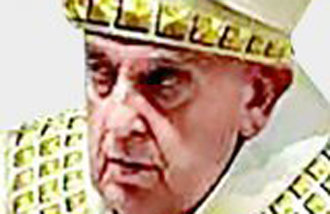Korean Diplomatic Efforts Not Working
Korean Diplomatic Efforts Not Working
Posted September. 20, 2006 06:07,
Korean diplomacy appears to have fallen into a complete rut as government officials are giving contrasting explanations of President Roh Moo-hyuns current visit to the United States, while the summit meeting has failed to close the gap between the two countries on placing financial sanctions on North Korea.
It was released on Tuesday that during his visit, President Roh apparently requested the U.S. government to bring the investigation on Banco Delta Asia (BDA) to an early close but was refused. BDA is a Macau bank blamed for acting as a channel for North Koreas money laundering.
Lee Tae-sik, Korean ambassador to the U.S., disclosed to Washington correspondents on Monday that President Roh met with U.S. Treasury Secretary Henry Paulson on September 13, a day before the summit talks, and asked him to speed up the investigation on BDA and wrap it up quickly but did not receive a committed answer.
However, Cheong Wa Dae spokesperson Yoon Tae-young denied Ambassador Lees comments by announcing on Tuesdays briefing that, The President asked Secretary Paulson about how the BDA investigations were going, but did not directly request for an early end to the case.
Analysts suggest that the fundamental reason for the current troubles, where the strain between Seoul and Washington is compounded with confusion within the Roh administration, lies in the Korean governments attempt to emphasize only a common and broad approach to get the six-party talks started again, without having first bridged the differences on the North Korean nuclear issue during the bilateral summit meeting.
Spokesman Yoon also denied the ambassadors remarks on American sanctions on the North that although before the summit talks sanctions seemed likely to be announced, it has not been decided yet as a result of [my] consultations with the State Department and the Treasury. We have never formally requested [the U.S.] to delay placing additional sanctions on North Korea, declared Yoon.
For its part, a State Department official said at a briefing on Monday that the U.S. is now considering restoring not only the sanctions that were lifted after North Korea signed a missile moratorium in 1999, but also the measures partially removed in 1995 following the Geneva Agreement which resolved the first North Korean nuclear crisis.
On the other hand, while the Korean government agrees with reinstating the sanctions cancelled in 1999 since the North has broken its missile moratorium by launching missiles in July, it still does not believe the sanctions should be stepped up to 1995 levels.
Concerns are hence being raised on whether the Roh administration will be able to gain substantial progress in persuading the U.S., Japan, and other neighboring countries to join the common and broad approach to get North Korea back on the six-party table.
jyw11@donga.com srkim@donga.com
Headline News
- Korean president faces debate limitations unlike U.S. counterpart
- KEPCO's first quarter profits failed to meet market expectations
- Teenagers are left out of discussions about national pension
- 2 consultative bodies submit minutes regarding increasing number of medical students
- Woo Sang-hyuk's rivalry and friendship transcend borders







